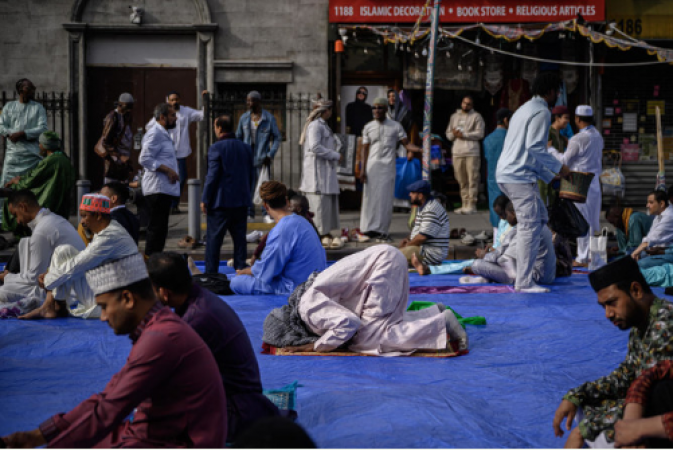
NY City: New York City judge has granted permission for the public broadcast of the Muslim call to prayer, also known as the adhan, without the requirement of a permit In a groundbreaking legal decision. The ruling, announced on Wednesday by Judge Alvin K. Hellerstein of the Federal District Court in Manhattan, upholds the First Amendment right to freedom of religion by deeming the city's permit necessity for broadcasting the adhan unconstitutional.
The case was brought forth by the New York chapter of the Council on American-Islamic Relations (CAIR), which argued that the permit requirement imposed by the city was discriminatory and unduly burdensome. The court's decision not only serves as a victory for the Muslim community in New York City but also establishes a precedent with potential implications for cities nationwide that impose comparable permit mandates for broadcasting religious sounds.
The city had maintained that the permit requirement was essential to mitigate noise pollution and ensure that the adhan's volume did not disrupt residents. However, Judge Hellerstein found the city's arguments lacking in substantive evidence that the adhan had ever contributed to noise pollution or disturbed local residents. The ruling, therefore, asserts that the permit prerequisite constitutes an unconstitutional encroachment on the fundamental freedom of religion enshrined in the First Amendment.
Also Read: Xiaomi Unveils Mix Fold 3: A Leap Forward in Foldable Smartphone Innovation
This ruling marks a significant milestone for religious freedom and the practice of faith without unwarranted government intrusion. By allowing mosques to publicly broadcast the adhan without the constraints of permits, the decision underscores the importance of safeguarding religious expression and upholding the diversity of spiritual practices within a democratic society.
Furthermore, the court's verdict establishes an essential principle—that even in instances where religious sounds are broadcast, constitutional protections apply. This extends beyond the Muslim community, serving as a reminder that the First Amendment safeguards the rights of all religious groups to freely practice their faith and express their beliefs.
The legal victory resonates deeply within the Muslim community in New York City, as well as among advocates for religious freedom across the country. Celebrated as a triumph of the First Amendment's intent, the ruling not only acknowledges the value of diverse religious practices but also contributes to the overarching framework of rights that underpins the United States' democratic ethos.
Also Read: Microsoft's Bold Move: Acquiring Nuance Communications to Catalyze AI and Healthcare Endeavors
However, the ruling's implications extend beyond religious freedom, touching on urban planning and community relations. Balancing the interests of religious observance and the concerns of noise pollution management underscores the complexities of urban governance and the delicate task of upholding individual rights while ensuring communal well-being.
As the legal decision reverberates, it remains to be seen how other cities with comparable permit requirements for religious sounds will respond. This ruling challenges municipalities to reevaluate their own practices, considering whether they appropriately weigh the right to religious expression against legitimate concerns related to noise pollution.
The ruling also underscores the judiciary's role in safeguarding the constitutional rights of individuals and communities. In this case, the court acted as a guardian of the First Amendment, asserting its authority to prevent undue restrictions on religious freedom.
The City of New York, in response to the ruling, has indicated that it is reviewing the decision and may consider appealing. This response highlights the complexity of balancing competing interests within the framework of constitutional law.
Also Read: Google Unveils AI Research Hub in Bengaluru, India to Drive Innovation
the court's ruling granting the Muslim call to prayer the right to be broadcast without a permit in New York City is a watershed moment for religious freedom. The decision underscores the importance of upholding First Amendment rights and acknowledges the significance of diverse religious practices in the fabric of American society.
While this verdict may have wider implications for other cities, it serves as a reminder that the United States is a nation founded on principles of religious liberty, where diverse faiths can coexist and thrive without unwarranted government constraints.